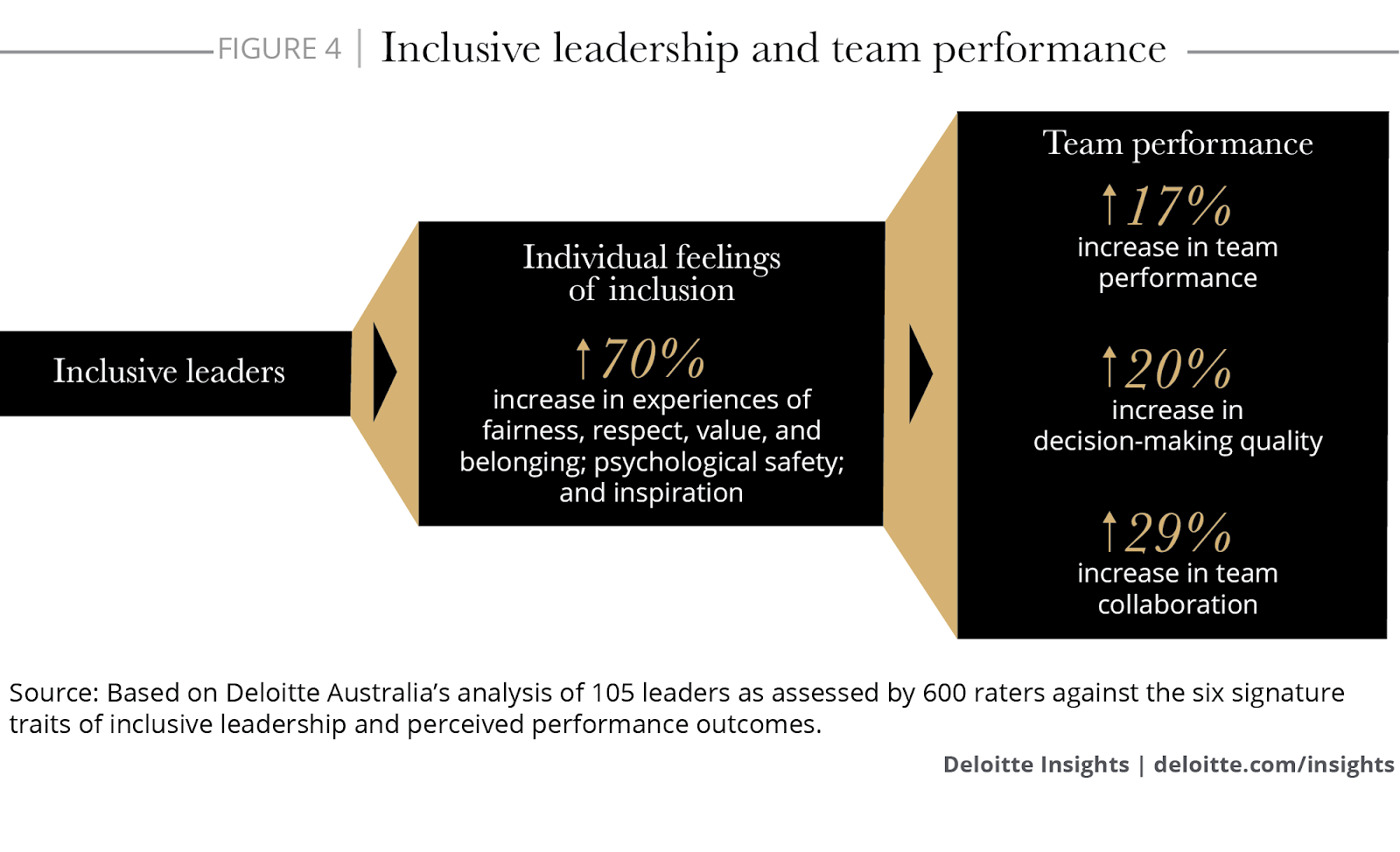3 Key Qualities of Inclusive Leaders
From Diversity to Inclusion
In 2015, McKinsey published their inaugural report on diversity in the workplace: “Why diversity matters.” Five years later, the title of their report in this series changed to: “Diversity wins: How inclusion matters” (2020).
From diversity to inclusion – this shift in focus reflects the ways organizational understanding of diversity in the workplace has been evolving, particularly over the last decade. Diversity is no longer a nice-to-have, but a must, and inclusion is increasingly understood as how organizations can harness the power of diversity sustainably, without harm or backlash.
As Verna Myers, a leading expert on diversity and inclusion, once said: “Diversity is being invited to the party. Inclusion is being asked to dance.” According to the Canadian Centre for Diversity and Inclusion (CCDI), inclusion means creating a culture that embraces, respects, accepts, and values diversity.
Leaders have a particularly important role to play: recent research by Deloitte shows that the behaviours of leaders (whether they are senior executives or managers) can drive up to 70 percentage points difference between the number of employees who feel highly included and those who do not (figure 1).
So, the question is: how can we become more inclusive leaders? What are some key qualities of inclusive leaders, and why do these qualities make a difference?
Here are 3 traits that provide the answer to these questions.
Accountability
According to Deloitte’s study, the first critical trait for inclusive leaders is commitment. This means not only believing in but committing to diversity and inclusion because these objectives align with your personal values and you believe that D&I is beneficial to the organization.
Making a commitment also means creating a plan to assess how and when your commitment has been met. In other words, you are making a plan to hold yourself accountable.
Whether these are individual action plans to govern your leadership behaviours during your daily interactions with your teams or plans to make systemic changes to your organization’s structures and policies, accountability is key to ensuring that your commitment makes a meaningful difference to the actual lives and experiences of your peers and employees.
If this is a trait you would like to develop, take a moment to reflect on the following questions:
- How does D&I align with your personal values and the goals of your teams and organization?
- What commitments do you have to make D&I a reality in the experiences of your teams and employees?
- How do you plan to make your commitment visible and to assess whether these commitments have been met?
Humility
As a leader, it’s impossible to know the challenges and barriers impacting every employee on your team. However, the only way to mitigate this is by continuously learning about the experiences of others and listening to their perspectives, especially when their perspectives and experiences are different from our own.
Humility behaviours therefore include being modest about your capabilities, admitting mistakes, and creating space for others to contribute. Partaking in these behaviours demand your willingness to be vulnerable, but research shows that when a leader’s cognizance of bias is combined with high levels of humility, it can increase others’ feelings of inclusion by up to 25%.
If you are reflecting on your humility, consider your answers to the following questions:
- Whose perspectives do you usually rely on to make key decisions that impact your team’s experiences? Whose perspectives are you missing?
- What spaces and channels do you have available to invite candid and constructive feedback from your peers and employees on a regular basis?
- How can you demonstrate to your teams/employees that you are willing to admit your mistakes and continue to learn and grow as a leader?
Empathy (perspective-taking)
According to Annie McKee, the author of the HBR article “If You Can’t Empathize with Your Employees, You’d Better Learn To,” empathy is the ability to read and understand other’s emotions, needs, and thoughts. It is also a core competency of emotional intelligence and a critical leadership skill.
A recent study published in the MIT Sloan Management Review reveals that managers with high empathy paired with high competence excel at creating a sense of shared direction and commitment within their teams, no matter how culturally diverse and physically disparate.
This is an important skill today, particularly when many workers, regardless of their gender, see flexibility as a “top 3” employee benefit and critical to their company’s success.
Meanwhile, empathy doesn’t mean reading someone’s mind or “faking it until you make it.” In fact, many can often detect false or empty gestures of empathy quite easily. A case in point: in the MIT Sloan Management Review study, several women interviewees noted encountering managers “faking” empathy because they were cognizant that it would be rewarded.
Instead, empathy can be nurtured through practicing a core component called “perspective taking.” By definition, perspective taking means the “mental flexibility to intentionally adopt the perspectives of others.” According to Dr. Elizabeth Segal, an expert on social empathy, perspective-taking involves 3 steps: mental flexibility, intentionality, and the adoption of another person’s view of things. You can read more about each of these steps in her article: “How Perspective-Taking Helps Us Understand Others and Ourselves.”
To reflect on your practice of empathy as a leader, here are 3 questions to ask yourself:
- What questions do I ask on a daily basis to better understand someone else’s perspective that’s different from mine?
- How can I be more fully present when I am interacting with colleagues? What new habits should I build and what current habits should I avoid?
- How can I help my colleagues feel more seen and heard?
Curious to learn more? Explore the full range of our Diversity, Equity, & Inclusion Training for more practical tools and learning strategies on how to develop your inclusive leadership skills today!
If you're inspired to dive deeper, explore our infographic, How to Adopt an Inclusive Mindset.
Related Posts
Empower Your Leaders with Inclusive Leadership
Discover practical strategies to embrace empathy, humility, and respect, driving innovation and engagement in your organization. Learn how inclusive leadership empowers your workforce and fosters a culture of belonging.
Read MoreLeadership Development and DEI Training: What is the Relationship?
At The Humphrey Group, we believe that inclusion training is and should be a core part of leadership development.
Read MoreDefining DEI: What Are Some Key Terms I Should Know? Part 1
Discover the importance of Diversity, Equity, and Inclusion (DEI) in organizations. Find out why leaders are prioritizing and how it benefits organizations.
Read More

.png?length=720&name=custom-image%204%20(1).png)